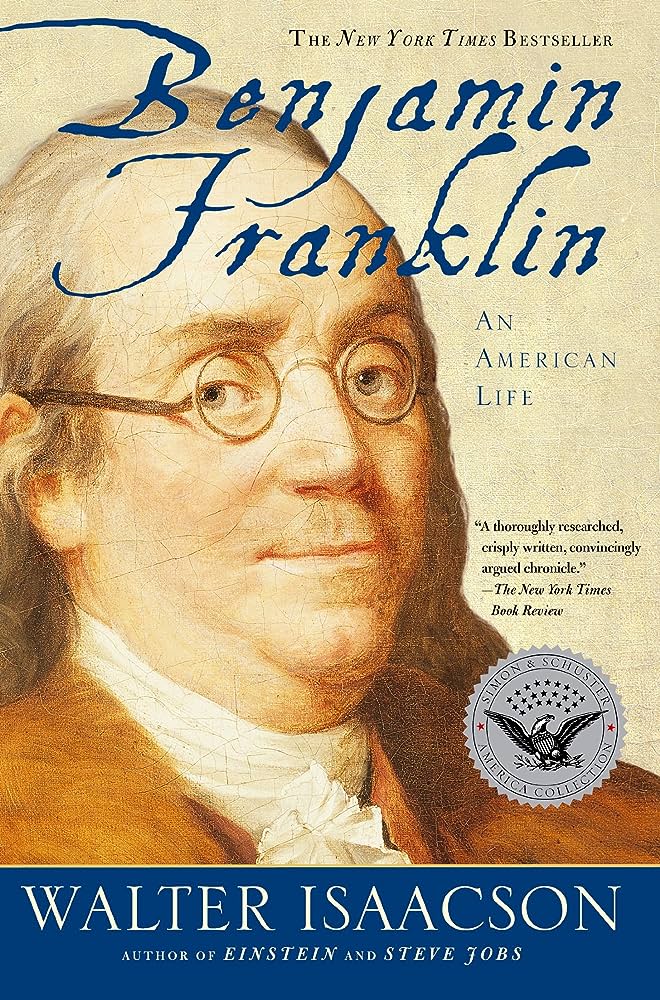Notes and excerpts from Walter Isaacson’s Benjamin Franklin: An American Life
Date read: 11/26/2022
Franklin describing the themes in Poor Richard’s Almanacks (page 17):
Industry and frugality are the means of procuring wealth and thereby securing virtue.
Franklin’s self-improvement course (page 28):
Franklin read the essays, took brief notes, and laid them aside for a few days. Then he tried to recreate the essay in his own words, after which he compared his composition to the original. Sometimes he would jumble up the notes he took, so that he would have to figure out on his own the best order to build the essay’s argument.
20 year old Franklin’s “Plan for Future Conduct” (page 49):
1. It is necessary for me to be extremely frugal for some time, till I have paid what I owe.
2. To endeavor to speak truth in every instance; to give nobody expectations that are not likely to be answered, but aim at sincerity in every word and action — the most amiable excellence in a rational being.
3. To apply myself industriously to whatever business I take in hand, and not divert my mind from my business by any foolish project of suddenly growing rich; for industry and patience are the surest means of plenty.
4. I resolve to speak ill of no man whatsoever.
Franklin’s Moral Perfection Project (pages 89–90):
Temperance: Eat not to dullness; drink not to elevation
Silence: Speak not but what may benefit others or yourself; avoid trifling conversation.
Order: Let all your things have their places; let each part of your business have its time.
Resolution: Resolve to perform what you ought; perform without fail what you resolve.
Frugality: Make no expense but to do good to others or yourself; (i.e., waste nothing).
Industry: Lose no time; be always employed in something useful; cut off all unnecessary actions.
Sincerity: Use no hurtful deceit; think innocently and justly, and, if you speak, speak accordingly.
Justice: Wrong none by doing injuries, or omitting the benefits that are your duty.
Moderation: Avoid extremes; forbear resenting injuries so much as you think they deserve.
Cleanliness: Tolerate no uncleanliness in body, clothes, or habitation.
Tranquility: Be not disturbed at trifles, or at accidents common or unavoidable.
Chastity: Rarely use venery but for health or offspring, never to dullness, weakness, or the injury of your own or another’s peace or reputation
Humility: Imitate Jesus and Socrates.
Become obsessed with the details and winning each day. Franklin on the time he spent designing street lamps (page 154):
Human felicity is produced … by little advantages that occur every day.
Franklin on God in our lives (page 451):
If a sparrow cannot fall to the ground without his notice, is it probable that an empire can rise without his aid?

Leave a comment